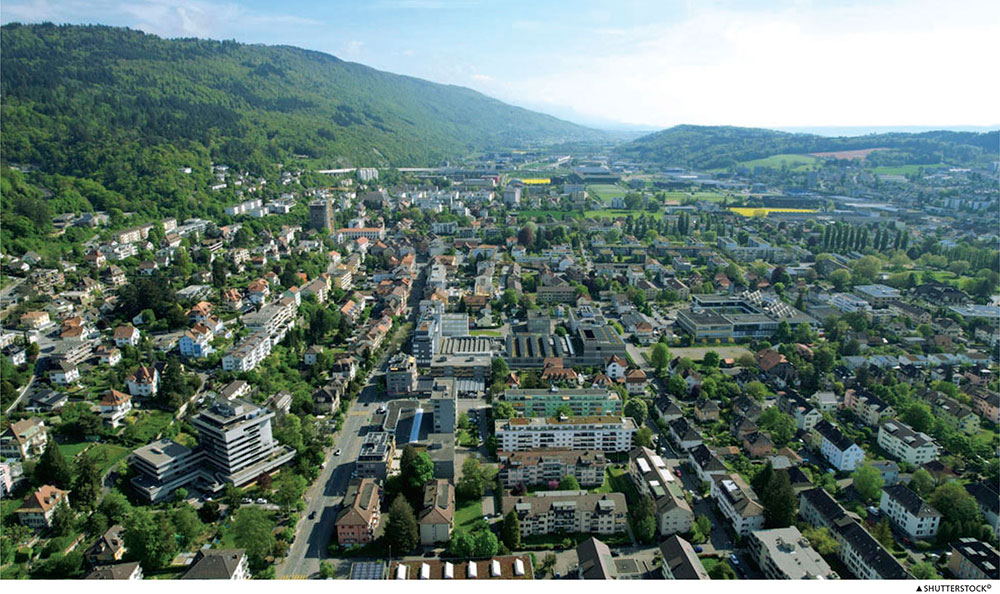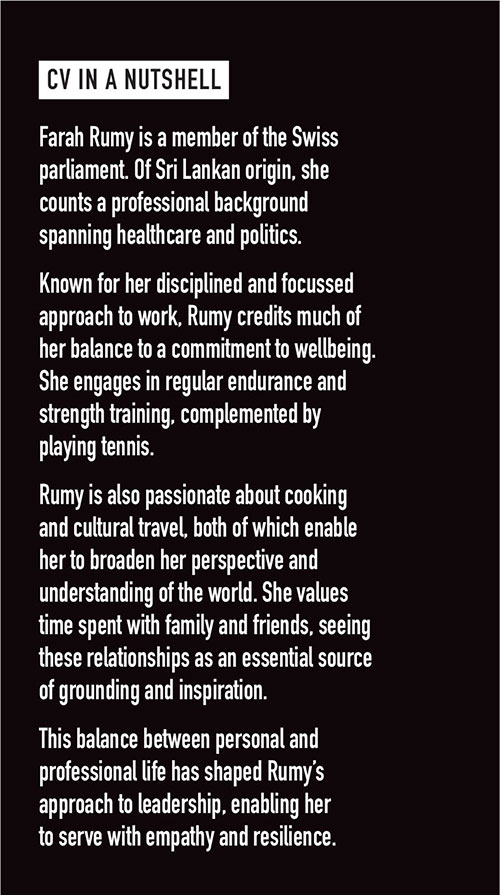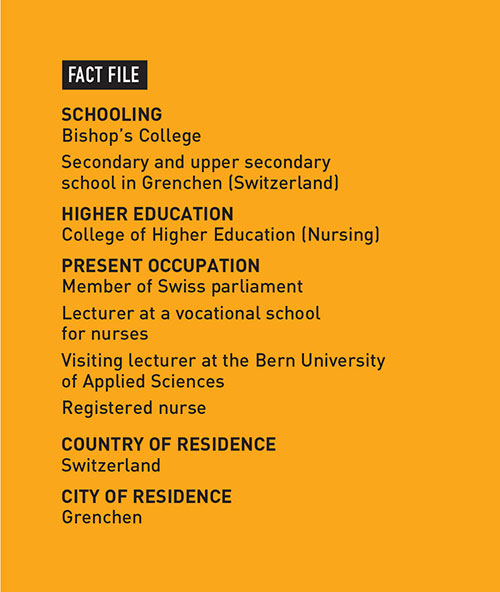Farah Rumy
Seek intellectual remittances
Q: Could you outline your early life in Sri Lanka – and how your journey brought you to Switzerland?
A: I was born in Colombo and migrated to Switzerland due to the civil conflict in Sri Lanka at the time. I completed my schooling in Switzerland, trained as a registered nurse and taught at a vocational college.
My professional background is in healthcare. During the COVID-19 pandemic, it became evident how fragile and under-resourced our healthcare system was, which led me to engage in health and labour policy.
I became a member of the Social Democratic Party of Switzerland and served in the cantonal parliament of Solothurn from 2021 to 2023.
Since December 2023, I’ve been serving in the Swiss National Council, and am currently one of the youngest members of parliament and the first elected representative in Swiss history with Sri Lankan heritage.
My political priorities include strong public services, social equity and the democratic inclusion of all population groups.
Q: What challenges did you face as a woman of South Asian origin entering Swiss politics? And how did you overcome them?
A: One of the main challenges was visibility in a political environment that remains predominantly male and white.
However, I prioritised content and credibility, built expertise in core areas – including healthcare, labour policy and foreign affairs – and ensured that I was always prepared. And I invested in cross party cooperation and long-term alliances.
Ultimately, professional consistency, political clarity and the refusal to let bias shape my role made the difference.
Q: How do you advocate for diversity and inclusion within the Swiss political system?
A: Diversity is a question of democratic legitimacy. I regularly speak about the importance of inclusive representation and maintain contact with communities, including immigrant families, to make political processes more accessible and transparent.
I’ve also initiated concrete local projects such as RestEssBar Grenchen, which is an initiative against food waste where people can collect surplus food free of charge. Over time, the project has evolved into a space for social exchange and informal integration.
At the party level, I advocate for binding diversity targets on candidate lists within the Social Democratic Party. Representation requires clear rules, political will and structural support.
Q: Do you see potential for deeper political, cultural or economic collaboration between Sri Lanka and Switzerland?
A: Absolutely. There is untapped potential for closer cooperation.
Switzerland’s strengths in vocational education, renewable technologies, federal governance and humanitarian mediation align well with Sri Lanka’s development priorities.
Politically, Switzerland’s tradition of good offices and neutrality makes it a credible dialogue partner in supporting Sri Lanka’s reconciliation efforts. Culturally, both countries are multilingual and religiously diverse with federal or devolved governance structures.
An exchange on minority rights and inclusive policy making would be mutually beneficial.
I welcome the reactivation of the Sri Lankan-Swiss parliamentary friendship group and am in the process of establishing a counterpart group in Switzerland, which I will chair.
Strengthening parliamentary relations between our two countries is a priority I take seriously. The Swiss ambassador continues to be an active partner on the ground in Sri Lanka and I intend to build on that foundation.

Q: In what ways can the Sri Lankan diaspora contribute more effectively to the nation’s development?
A: Remittances remain vital but intellectual remittances are equally powerful. Members of the diaspora can contribute their expertise in areas such as cybersecurity, healthcare and climate resilient agriculture.
Meanwhile, Sri Lanka has resources and talent that should be developed from within. Diaspora based professional networks can support Sri Lankan SMEs in integrating into global value chains, shifting the focus from labour exports to value added cooperation.
Finally, the diaspora plays an essential role in advocacy and lobbying for fair trade policies and ethical supply chains in host countries. In this context, soft power and economic interests can reinforce one another when strategically aligned.
Q: What advice would you offer to young Sri Lankan women – both in the diaspora and back home – who aspire to take on leadership roles?
A: First, develop deep expertise in your chosen field as it shields you from dismissive attitudes and ensures that your voice carries weight.
Second, build coalitions that bridge ethnic and social divides.
Third, write opinion pieces, engage in community forums and use digital platforms to increase your visibility.
And finally, remember that ambition is not arrogance. Leadership is a responsibility to serve the public – embrace that truth confidently and without apology.



